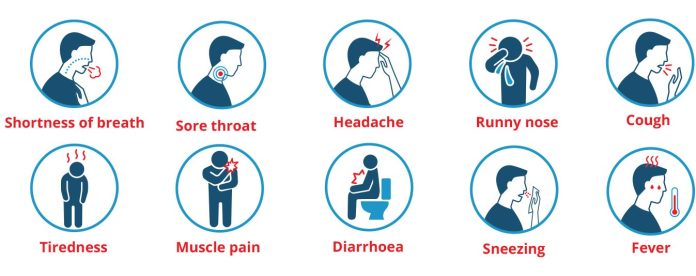After three years of the COVID-19 pandemic, health systems in countries have started showing the first major signs of health system recovery, according to the WHO interim report.
The report is titled the “Fourth round of the global pulse survey on continuity of essential health services during the COVID-19 pandemic: November 2022–January 2023”.
The survey released on Tuesday showed that by early 2023, countries reported experiencing reduced disruptions in the delivery of routine health services, but highlighted the need to invest in recovery and stronger resilience for the future.
Among the 139 countries that responded to the fourth round of WHO’s pulse survey, countries reported continued disruptions in almost one-quarter of services on average.
In 84 countries where trend analysis is possible, the percentage of disrupted services declined on average from 56 per cent in July-September 2020 to 23 per cent in November 2022 to January 2023.
Commenting on the survey, the WHO Director for Integrated Health Services, Dr Rudi Eggers said “It is welcome news that health systems in the majority of countries are starting to restore essential health services for millions of people who missed them during the pandemic.
“But we need to ensure that all countries continue to close this gap to recover health services, and apply lessons learnt to build more prepared and resilient health systems for the future”.
The WHO said in the survey, fewer countries reported intentionally scaling back access across all service delivery platforms and essential public health functions since 2020-2021 reporting, showing an important step to return to pre-pandemic levels of service delivery and broader system functioning.
“By the end of 2022, most countries reported partial signs of service recovery, including in services for sexual, reproductive, maternal, newborn, child, and adolescent health; nutrition; immunisation; communicable diseases (including malaria, HIV, TB, and other sexually-transmitted infections); neglected tropical diseases; noncommunicable diseases; management of mental, neurological and substance use disorders; care for older people; and traditional and/or complementary care.
“The number of countries reporting disruption to their national supply chain system reduced from nearly half (29 of 59 responding countries) to about a quarter (18 of 66 responding countries) within the last year.
“Despite signs of recovery, service disruptions persist across countries in all regions and income levels, and across most service delivery settings and tracer service areas. Countries are also dealing with increasing service backlogs – most frequently in services for screening, diagnosis, and treatment of noncommunicable diseases – which can lead to negative consequences as people are delayed access to timely care,” the UN agency said.
The organisation added that most countries have made progress in integrating COVID-19 services into routine health service delivery.
“Most countries have started to apply what they have learnt during the COVID-19 pandemic, including through the institutionalisation of a number of innovative service disruption mitigation strategies into routine health service delivery.
“These include deployment of telemedicine approaches, promotion of home-based care or self-care interventions, approaches for strengthening health workers availability, capacities, and support mechanisms, innovations in procuring and delivering medicines and supplies, more routine community communications, and partnerships with private sector providers.
“Three-quarters of countries reported additional funding allocation towards longer-term system recovery, resilience, and preparedness.
Countries expressed the need for WHO support to address remaining challenges in the COVID-19 context and beyond, most frequently related to health workforce strengthening, building the monitoring capacities of health services, designing primary health care — oriented models of care, governance, policy and planning, and financial planning and funding.” it said.
Globally, as of April 26, 2023, there have been 764,474,387 confirmed cases of COVID-19, including 6,915,286 deaths, reported to WHO.
As of April 25, 2023, a total of 13,343,360,939 vaccine doses have been administered.


